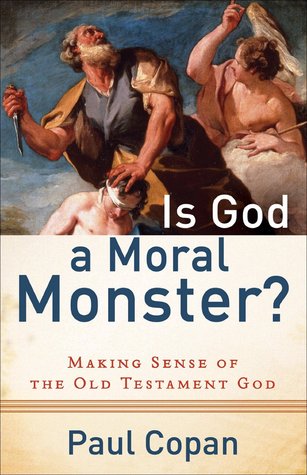More on this book
Community
Kindle Notes & Highlights
by
Paul Copan
Started reading
May 31, 2019
First, for all their emphasis on cool-headed, scientific rationality, they express themselves not just passionately but angrily.
And, of course, the discerning person will recognize that Jesus shouldn’t be blamed because of the abuses of his professed followers.
Second, the Neo-atheists’ arguments against God’s existence are surprisingly flimsy, often resembling the simplistic village atheist far more than the credentialed academician.
Yes, it’s easy to attack a caricature with emotionalism and simplistic slogans. So with the New Atheists “going village” on us, this makes it hard to have a decent conversation.
Third, the New Atheists aren’t willing to own up to atrocities committed in the name of atheism by Stalin, Pol Pot, or Mao Zedong, yet they expect Christians to own up to all barbarous acts performed in Jesus’s name.
Pride, we know, is an inflated view of ourselves—a false advertising campaign promoting ourselves because we suspect that others won’t accept who we really are.2 Pride is actually a lie about our own identity or achievements. To be proud is to live in a world propped up with falsehoods about ourselves, taking credit where credit isn’t due.
faith and in their proper use of God-given abilities (2 Cor. 7:14; 9:3–4).
The God-dependent believer can “boast in the Lord” (2 Cor. 10:17) and in the cross of Christ (Gal. 6:14). This is no “pull yourself up by your own bootstraps” type of self-reliance; that would be a failure or refusal to acknowledge our proper place before God in light of his grace.
What then is humility? This involves having a realistic assessment of ourselves—our ...
This highlight has been truncated due to consecutive passage length restrictions.
True humility doesn’t deny abilities but rather acknowledges God as the source of these gifts, for which we can’t take credit. What do we have that we didn’t receive (1 Cor. 4:7)? To be humble is to know our proper place before God—with all of our strengths and weaknesses.
Well, then, is God proud? No, he has a realistic view of himself, not a false or exaggerated one. God, by definition, is the greatest conceivable being, which makes him worthy of worship.
Jesus tells us that worship is directed to either God or a God-substitute of our making (that is, an idol).
Why does God insist that we worship him? For the same reason that parents tell their young children to stay away from fire or speeding cars. God doesn’t want humans to detach themselves from ultimate reality, which only ends up harming us.
Worship expresses an awareness of God’s—and thus our—proper place in the order of things, and it also transforms us into what we were designed to be.
I think we delight to praise what we enjoy because the praise not merely expresses but completes the enjoyment; it is appointed consummation.7
Those who have attained everlasting life in the vision of God know very well that it is no mere bribe, but the very consummation of their earthly discipleship.8
First, God is triune. Three distinct divine persons share an eternal, unbreakable unity of one being.
Second, God becomes human. Further evidence of divine humility is the incarnation of Christ.
Because humans are made in God’s image, it’s not a contradiction for God to become human; after all, what makes us human is derived from God’s nature in the first place.
God didn’t become less than, in fact, he enabled us [humans] to become more than just human—not gods ourselves but now, a member of His divine family.
Jesus comes not to be served but to “serve” and to “give His life a ransom for many” (Mark 10:45).
Third, God takes our place on a cross.
Jealousy can be a bad thing or a good thing. It’s bad to protect the petty; it’s good to fiercely guard the precious. If jealousy is rooted in self-centeredness, it is clearly the wrong kind of jealousy. A jealousy that springs from concern for another’s well-being, however, is appropriate.
Israel’s idolatry was like a husband finding his wife in bed with another man—on their honeymoon!
No, the crucifixion was no act of divine child abuse. It was the history-defining event in which God gave his very self for humanity’s sake.


